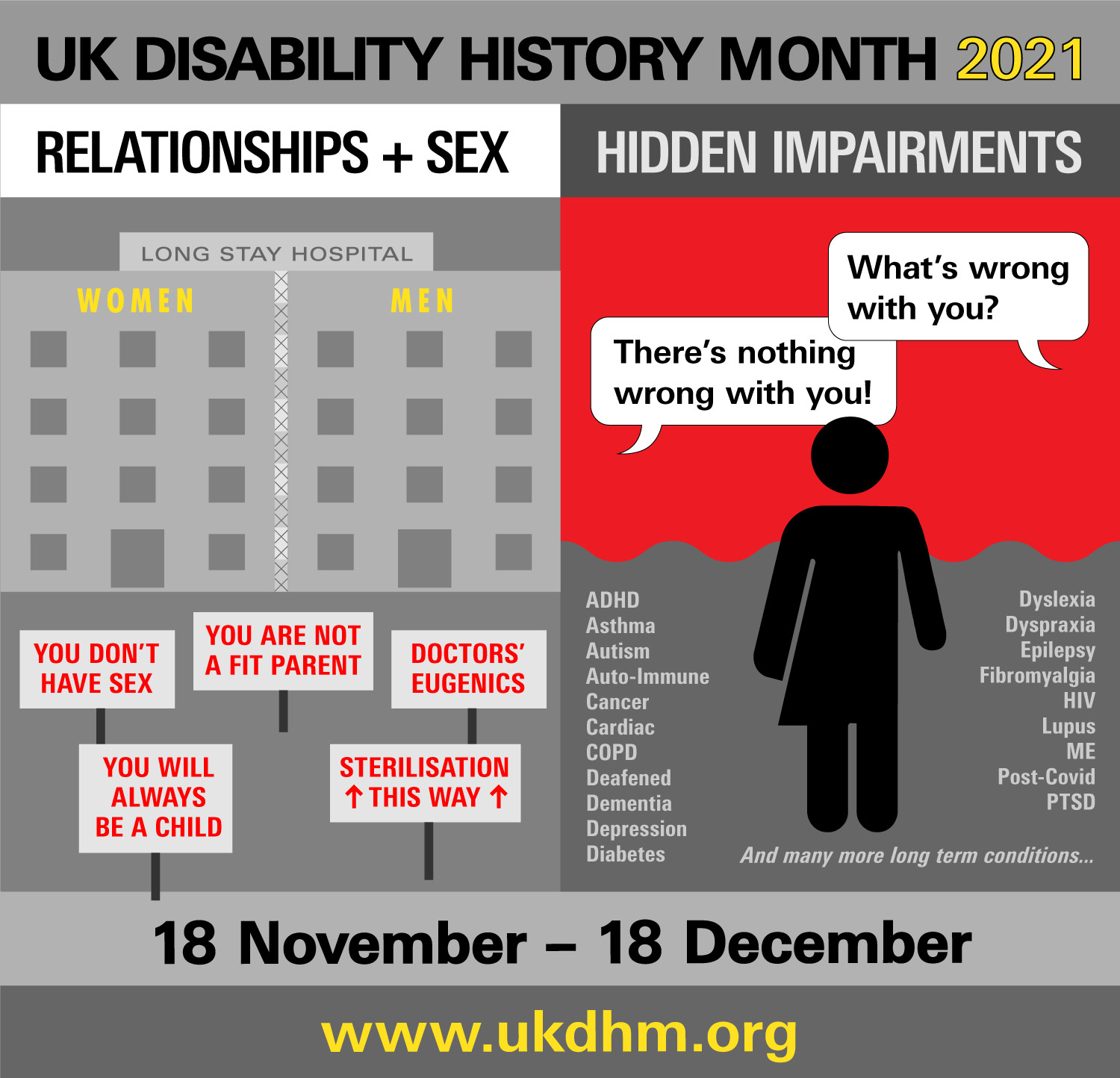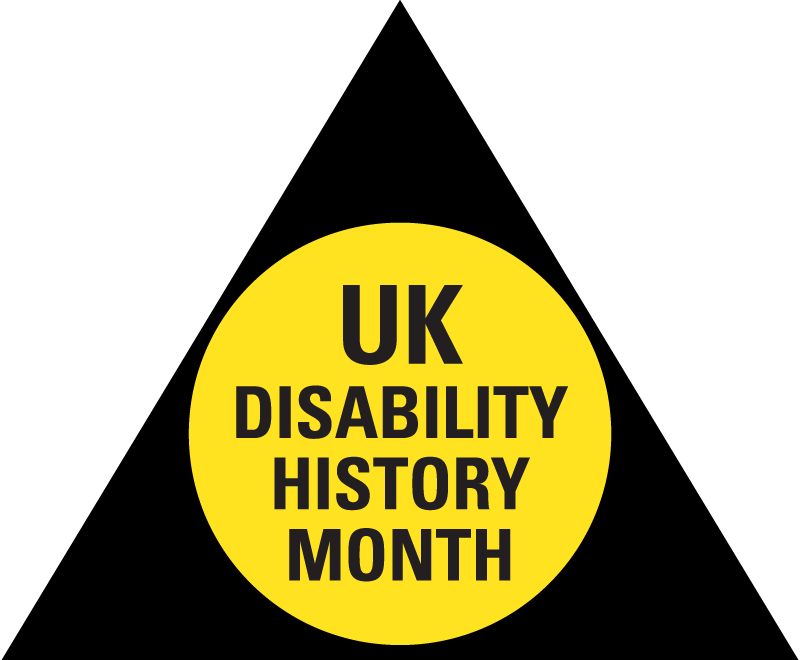
UK Disability History Month is now in its 12th Year.
UK Disability History Month 2021 is from 18th November till 18th December
Our Joint themes in 2021 are:
Our aim has always been to:
- Celebrate our Lives as Disabled People now and in the past
- Challenge Disabilism by exploring our oppression over time and now
- Achieve Equality
Currently the Equality Act 2010 defines disability as “if you have a physical or mental impairment that has a ‘substantial’ and ‘long-term’ negative effect on your ability to do normal daily activities.”
- ‘substantial’ is more than minor or trivial,
- ‘long-term’ means 12 months or more or likely to last 12 months or more
- a physical or mental impairment impacts on ability to do normal day to day activities and must be judged without the impact of assistive devices, medication or treatment.
UKDHM adheres to the social model of disability in which the barriers of attitude, environment and organisation cause most of the disabilism we face. Such thinking did not exist in most of the past with individuals and their impairments held responsible for the disadvantage and worse. Disabled people experienced being seen as bewitched, evil or punished by God. Disabled people were often viewed as perpetual children incapable of adult relationships.
However, in this era of Universal Human Rights we can look back and reinterpret the mistreatment, resulting from our systematic oppression caused by negative attitudes, ignorance and barriers. Such an examination of the past allows us to recognise what must actively change for disabled people to achieve equality.
Many disabled people have an invisible/hidden impairment now and in the past. They have been not viewed as disabled people but still been mistreated. Equally because of the negativity associated with impairment, many who can pass as non-disabled have chosen not to identify, even though this has caused them many difficulties. Common amongst this large group of disabled people are those with psychosocial impairments. These include autism or attention deficit; Cognitive or neurological impairments such as specific learning difficulty i.e. dyslexia, dyspraxia, or more general learning difficulties, epilepsy, muscular dystrophy, multiple sclerosis or brain injury; mental health impairments such as anxiety, depression, shell shock/PTSD, bipolar or schizophrenia; metabolic impairments such as lupus, HIV, cancer, tuberculosis, diabetes, chronic fatigue, heart conditions, arthritis; hormonal conditions or sensory issues such as hearing loss, many visual conditions or speech and communication. More than half the 13.5 million people currently identified as disabled in the UK have hidden impairments.
For millenia disabled people were often desexualised, and viewed as perpetual children, incapable of adult relationships. More recently in the last 150 years the false science of Eugenics was ranged against us, sterilising us, segregating us in single sex institutions, denying us the right to married life and sexual relations and taking any children away from us as we were deemed not capable of being parents. The emotional pain and injustice of all this has been largely hidden from history. Within a few miles, wherever you live in the UK, there will be multiple examples to be uncovered in family trees, public records, public libraries where the records of asylums, long stay hospitals and social services can be found in archives.
Today all disabled children are entitled to Sex and Relationship Education and more confident generations of young disabled people are finding the joy of diverse sex and relationships with partners of their choice, but the lack of self-esteem that comes with a disempowering approach to disability can still cause huge harm including consent issues and abuse.
We will be looking for examples of good and bad practice in both hidden impairment and sex and relationships to add to this year’s resources.
Get your MP to sign the Early Day Motion to recognise UKDHM in UK Parliament
Please send examples to UKDHM Coordinator Richard Rieser rlrieser@gmail.com
